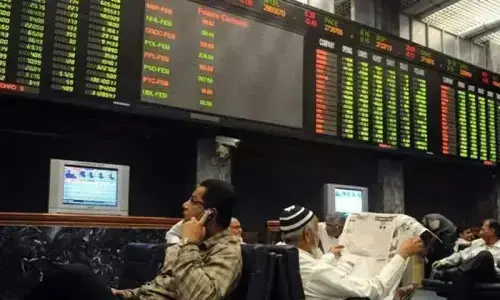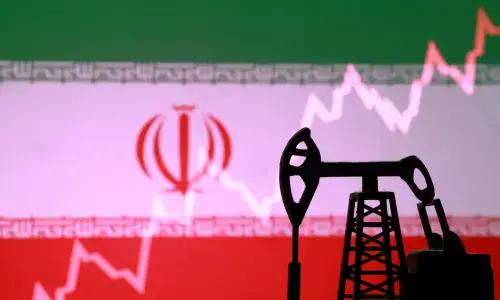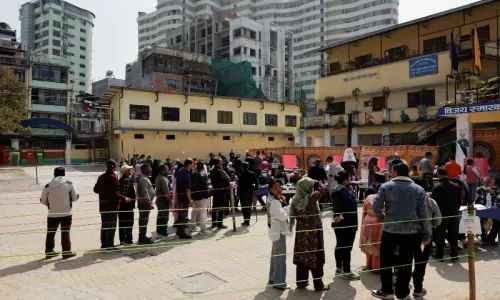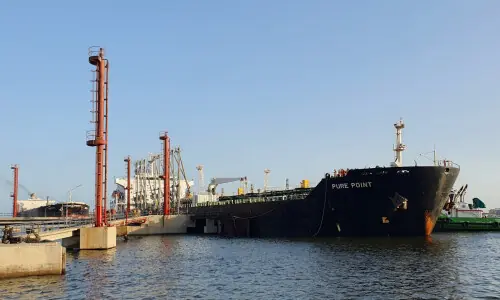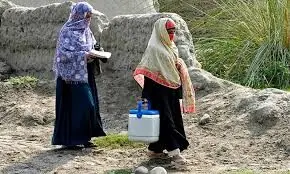RIYADH: If oil-related sanctions against Iran are lifted, world oil prices next year could be $5 to $15 a barrel lower than the current forecasts, the US Energy Information Agency (EIA) is projecting.
It projects Brent to be at $59 this year and $75 a barrel next year, yet underlining the risks from Iran’s return.
“A lifting of sanctions against Iran, should a comprehensive nuclear agreement be concluded, could significantly change the forecast for oil supply, demand, and prices,” good, old friend Adam Sieminski, the EIA Administrator, said in a statement.
It added that Iran is believed to hold at least 30 million barrels of crude in storage, and that the nation could ramp up crude production by at least 700,000 barrels per day (bpd) by end of 2016.
Iran, the world’s fifth-largest oil producer, however, is endeavouring to double its exports from just over 1 million bpd in two months, once sanctions are lifted. Most analysts though doubt this. As per the International Energy Agency estimates, Tehran is currently producing 2.8 mbpd. Unconstrained by sanctions, Iran could increase that to 3.6 mbpd, in as few as six to 12 months.
However, in order to go beyond 3.6 mbpd, it would need foreign investment. A decade ago, it was able to pump 4.5 mbpd and output peaked at about 6 mbpd in 1974.
Now with the possibility of the sanctions being lifted, Iran is looking to ramp-up its exports and rather quickly. Iran’s Oil Minister Bijan Zanganeh has been meeting Western oil executives discussing their return into the Iranian oil sector, once sanctions are lifted.
In order to achieve its immediate objectives, Iran is also seeking to resolve differences with Chinese energy companies. Iranian officials were in China last week to discuss Chinese investments in oil and gas developments in Iran, as well as oil sales. Iran also wanted the Chinese companies to use the latest technology and equipment in any resumption of work to get fields pumping, Amir-Hossein Zamaninia, Iran’s deputy oil minister for commerce and international affairs was quoted as saying.
The officials were soon followed by a visit to Beijing, the world’s largest crude importer, by Iranian Oil Minister Bijan Zanganeh, his first since assuming his post two years ago.
This flurry of visits to Beijing from Tehran is to be seen in the backdrop of the fact that some of the enhanced output is expected to come from projects that the Chinese state companies China National Petroleum Company (CNPC) and Sinopec Group have contracted to develop.
China’s investments in Iran include projects such as the $4.7 billion development of the giant offshore South Pars gas field and the North Azadegan and Yadvaran oilfields. Activities on these developmental projects were stalled or scaled back in late 2010 as Western sanctions tightened.
Iran was also China’s sixth-largest crude oil supplier last year, behind Saudi Arabia, Angola and others, with sales up 28 per cent from 2013 to 27.46m tonnes, or about 550,000 bpd, according to Chinese customs data. Iran now wants the volume of sales to Beijing to go up too.
A new condensate deal between Zhuhai Zhenrong and NIOC is set to lift China’s total crude oil contract volumes to above 600,000 bpd later this year.
However, Iran’s full return to the oil markets may not be very easy and straight forward. It would be hindered by strong competition for investment dollars from rival producers including Iraq, Mexico and Brazil, among others, Javier BlasBradley Olson underlined in his story on the issue.
In a world of surplus supply, prices hovering around $50 a barrel and deep cuts to capital expenditures by oil companies, Iran will be challenged to find investors. Even if all the obstacles are resolved, “negotiations could take a year” once sanctions are lifted, a former CEO of Kuwait Petroleum Corp CEO, told an interviewer.
Tehran still has a long way to go.
Yet the very potential of the addition, of additional barrels of Iranian crude to the market, is definitely delaying any substantial recovery in oil market prices.
Published in Dawn, April 12th, 2015
On a mobile phone? Get the Dawn Mobile App: Apple Store | Google Play


